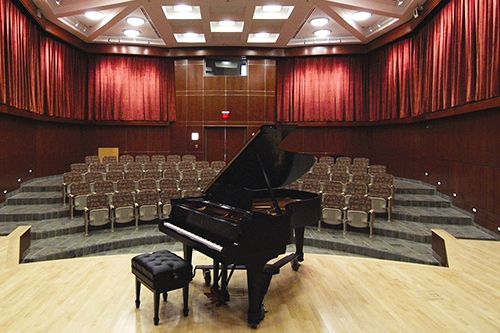Solo Cabaret Show
Tuesday, March 3rd 2:15 pm and
Thursday, March 5th 2:15 pm
Emerson Auditorium
(Free and open to all)
Astor
Concert Choir, Schola Contora, and Orchestra
Saturday, March 7th 4:00 pm
Memorial Chapel
(Tickets available on Eventbrite)
Early Music Ensemble
Exploring Sounds from the Balletto
to the Trio Sonata in the Baroque Era
Sunday, March 8th 2:00 pm
Emerson Auditorium
(Tickets available on Eventbrite)
Student Recital
Tuesday, March 10th 5:00 pm
Emerson Auditorium
(Free and open to all)
Jazz Ensemble: Winter Concert
Wednesday, March 11th 8:00 pm
Emerson Auditorium
(Tickets available on Eventbrite)
Projects in Performance and Composition Showcase
Thursday, March 12th 7:30 pm
Emerson Auditorium
(Free and open to all)
The History of Rock 'n' Roll Final Project Performances
Friday, March 13th 7:00 pm
Emerson Auditorium
(Free and open to all)






